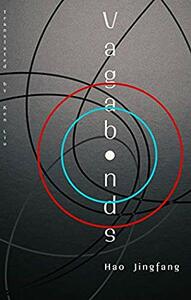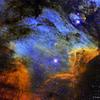Take a photo of a barcode or cover
Lo abandoné al 31%. No hay nada intrínsecamente mal con este libro solo que es aburrido, tiene un mundo interesante con una política entre Marte y la Tierra de la que quería saber más. Sin embargo, los personajes que llevan la historia no producen ni siquiera desagrado, no producen nada, me eran por completo indiferentes.
Captivating first half, but got less interesting (almost dragging) in the second half.
challenging
reflective
slow-paced
Plot or Character Driven:
Character
Strong character development:
Yes
Loveable characters:
Complicated
Diverse cast of characters:
Yes
Flaws of characters a main focus:
Yes
inspiring
reflective
sad
slow-paced
Plot or Character Driven:
A mix
Strong character development:
Complicated
Loveable characters:
Yes
Diverse cast of characters:
Yes
Flaws of characters a main focus:
Complicated
Family, dislocation, home, social commentary, clash of ideals
challenging
emotional
reflective
slow-paced
Plot or Character Driven:
Character
Strong character development:
Yes
Loveable characters:
N/A
Diverse cast of characters:
Yes
Flaws of characters a main focus:
Complicated
I just couldn't connect to it emotionally. It had some interesting ideas, and some of the characters were interesting, but I just didn't feel anything about any of them. Definitely check it out though, in case you feel differently!
emotional
reflective
medium-paced
Plot or Character Driven:
Character
Strong character development:
Complicated
Loveable characters:
Complicated
Diverse cast of characters:
N/A
Flaws of characters a main focus:
N/A
The year is 2201. Just over a hundred years ago, the Martian colonies fought and won a war of independence against Earth, and since then, the two planets have diverged sociologically. In Hao's incisive and all-too-plausible extrapolation, Earth embodies the triumph of Western laissez-faire capitalism driven by the internet's savagely competitive social media. Mars, technologically much more advanced and apparently utopian—and here the author treads more cautiously—persuasively represents what benevolent Chinese communo-capitalism might possibly evolve into. Consequently, mutual suspicion and resentment bordering on outright hostility dominate the Earth-Mars relationship. Hmm, can't imagine why such a discussion might be relevant at the moment.
Both worlds are gradually developed and treated with a nuanced view, though later chapters convey the more harrowing and concerning aspects. I was impressed by the combination of imaginative technologies and allegorical modern issues which could convincingly persist so many years in the future.
The story follows multiple young people who have traveled between the planets and can be considered vagabonds- adrift between two worlds, holding complex feelings for both and allegiance to neither. Just wandering in a strange space between. During its most shining moments of prose, Vagabonds does well in capturing that unique sort of journey.
The main character of focus is Luo Ying, a young dancer whose grandfather presides over Mars. Her parents died under mysterious circumstances. Across the span of her journey, she seeks to find out more about them and also process her thoughts on Mars versus Earth.
The story opens as like a flower with a satisfying resolution that keeps to the idea of neither choice be absolutely right or wrong but focused more on an understanding of how we can choose our roles.
Both worlds are gradually developed and treated with a nuanced view, though later chapters convey the more harrowing and concerning aspects. I was impressed by the combination of imaginative technologies and allegorical modern issues which could convincingly persist so many years in the future.
The story follows multiple young people who have traveled between the planets and can be considered vagabonds- adrift between two worlds, holding complex feelings for both and allegiance to neither. Just wandering in a strange space between. During its most shining moments of prose, Vagabonds does well in capturing that unique sort of journey.
The main character of focus is Luo Ying, a young dancer whose grandfather presides over Mars. Her parents died under mysterious circumstances. Across the span of her journey, she seeks to find out more about them and also process her thoughts on Mars versus Earth.
The story opens as like a flower with a satisfying resolution that keeps to the idea of neither choice be absolutely right or wrong but focused more on an understanding of how we can choose our roles.
Very little action, but so many interesting ideas and important lessons. She explores the future of art and social organization, mostly, with a lot of bits and pieces about life on Mars. Also, the Chinese idea (to which I subscribe) that the future will be between Chinese and American values, finds a prominent position throughout the text, though I strongly, strongly disagree with those who thought this was in any way an apologia for communism. I thought she presented a rather fair examination of a possible future, the pros and cons of each side being dwelt upon sometimes too fairly. Also, in the beginning, I felt she did a good job of showing how our impressions and prejudices lead us to bad conclusions.
Biggest issue I had was with the repetitive nature of the dialogue. So many conversations seemed almost mirror images of so many other dialogues, with always the same playing-it-safe conclusions and relative phrases.
Biggest issue I had was with the repetitive nature of the dialogue. So many conversations seemed almost mirror images of so many other dialogues, with always the same playing-it-safe conclusions and relative phrases.
It’s obvious that the writer is talented and has the ability to conjure images and some decent character development. However I was really bored with this story. The pacing was really off and there was a lack of anything that really pulled me in as a reader.




